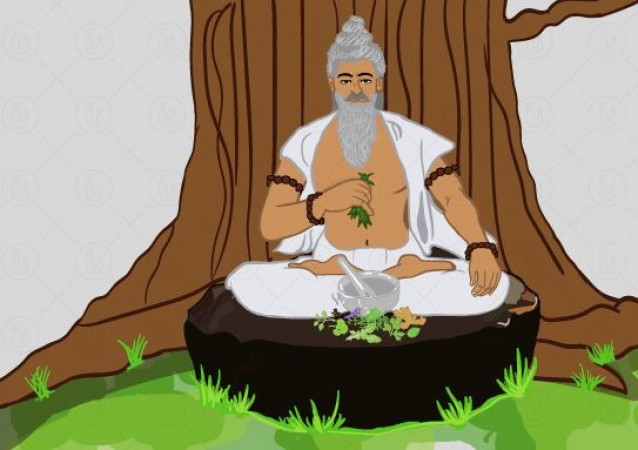
Embarking on a career in Ayurveda is not just a profession; it's a path to holistic well-being and healing. Ayurveda, the ancient system of medicine, has gained global recognition for its natural and holistic approach to health. Becoming an Ayurvedacharya, or Ayurvedic practitioner, is a rewarding journey that involves acquiring in-depth knowledge of this ancient science, understanding its principles, and mastering the techniques of natural healing. In this comprehensive guide, we'll explore the steps to pursue a career in Ayurveda, from education and training to practical experience and specialization.
1. Understanding Ayurveda: The Ancient Science of Healing
- The Philosophy of Ayurveda: Dive into the profound philosophy of Ayurveda, which emphasizes balance, harmony, and the innate healing power of the body.
- Ayurvedic Principles: Explore the fundamental principles of Ayurveda, including the concept of doshas, the importance of digestion (agni), and the role of the mind (manas) in health.
2. Education and Training: Nurturing Your Ayurvedic Knowledge
- Ayurveda Educational Paths: Understand the educational pathways available, ranging from traditional Gurukul-style learning to modern academic institutions.
- Ayurvedic Degree Programs: Discover the variety of Ayurvedic degree programs, such as BAMS (Bachelor of Ayurvedic Medicine and Surgery) and MD/MS Ayurveda, offered by accredited institutions.
- Accreditation and Recognized Institutions: Learn how to identify accredited and reputable Ayurvedic institutions that provide quality education.
3. The Journey to Ayurvedacharya: The Path to Mastery
- Prerequisite for Enrollment: Find out about the prerequisites for enrolling in Ayurvedic courses and the importance of a strong foundation in biology and chemistry.
- Bachelor's Degree in Ayurveda: Explore the significance of earning a Bachelor's degree in Ayurveda, such as BAMS, which forms the basis of your Ayurvedic journey.
- Postgraduate Studies and Specialization: Consider postgraduate studies and specialization options, including MD/MS Ayurveda, to deepen your expertise in specific areas.
4. Hands-On Training: From Theory to Practice
- Clinical Practice: Gain insights into the vital role of clinical practice, where you apply theoretical knowledge to real patient cases under the guidance of experienced Ayurvedic practitioners.
- Practical Experience: Understand the value of practical experience in preparing you for the challenges and complexities of Ayurvedic consultations.
- Apprenticeships: Explore the benefits of apprenticeships with seasoned Ayurvedic doctors, where you refine your diagnostic and treatment skills.
5. Licensing and Certification: The Legal Aspects of Ayurveda Practice
- National and International Certifications: Learn about the various certifications available, such as the Central Council of Indian Medicine (CCIM) certification, which allows you to practice Ayurveda in India.
- Licensing Requirements: Explore the licensing requirements in different countries and regions to ensure you meet the legal standards for Ayurvedic practice.
6. Building Your Ayurvedic Practice: Establishing Your Healing Sanctuary
- Setting Up Your Clinic: Get practical tips on establishing your Ayurvedic clinic, from selecting a suitable location to creating a serene healing environment.
- Marketing Your Practice: Understand effective marketing strategies, both online and offline, to attract and retain clients.
- Ethics and Patient Care: Embrace the ethical principles of Ayurveda, such as patient confidentiality and personalized care, to build trust with your clients.
7. Specializations in Ayurveda: Nurturing Your Expertise
- Ayurvedic Dermatology: Explore the specialized field of Ayurvedic dermatology, focusing on skin health and holistic beauty.
- Ayurvedic Gynecology: Delve into Ayurvedic gynecology, addressing women's health concerns, fertility, and pregnancy.
- Ayurvedic Pediatrics: Learn about Ayurvedic pediatrics, providing natural healthcare solutions for children.
- Ayurvedic Orthopedics: Specialize in Ayurvedic orthopedics, addressing musculoskeletal issues and promoting mobility.
8. Continuing Education and Research: Lifelong Learning and Innovation
- Staying Updated: Emphasize the importance of continuous learning to stay updated with evolving Ayurvedic practices and modern healthcare trends.
- Contributing to Ayurvedic Research: Explore opportunities to contribute to Ayurvedic research, advancing the field and enhancing patient care.
9. The Future of Ayurveda: Global Opportunities and Integration
- Global Recognition and Opportunities: Recognize the growing global recognition of Ayurveda, leading to career opportunities worldwide.
- Integration into Mainstream Healthcare: Explore the integration of Ayurveda into mainstream healthcare systems, offering a holistic approach to patient well-being.
10. Your Path to Becoming an Ayurvedacharya
- Summarize the rewarding journey of becoming an Ayurvedacharya and highlight the potential for a fulfilling and impactful career in Ayurveda, where you serve as a guardian of holistic health and natural healing.
This comprehensive guide equips aspiring Ayurvedacharyas with the knowledge and insights needed to navigate the path toward becoming skilled Ayurvedic practitioners, contributing to the well-being of individuals and communities around the world.
Enthusiastic Supporters Gather as CM Yogi Adityanath Pays Respects to Lokmata Devi Ahilya Bai Holkar
PM Modi's Productive Lunch Meeting with French President Macron Concludes G20 Summit
Heavy Rainfall in Delhi Amid G20 Summit; Light Showers Expected on Monday